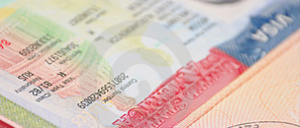Compare K3 Visa to CR1 Visa

While K3 Visa and CR1 Visa are both visas for spouses of US citizens, there are differences in the application process and the rights and benefits granted to the two types of visa holders.
A K3 visa is technically a temporary, non-immigrant visa. That means that a K3 visa holder can process the application for legal permanent residence while living in the US after receiving the K3 visa. This is called “adjustment of status.” However, the K3 visa will expire 30 days after the termination of the marriage
and the K3 visa holder will have to leave the US unless he or she has applied for legal permanent residence. A K3 Visa is a multiple entry visa, so the K3 visa holder is allowed to exit the US and re-enter as long as the visa remains valid. If the K3 visa expires while the application for legal permanent residence is still pending, you will have to file for a re-entry permit.
The K3 Visa holder can only apply for a work permit after entering the US. On the other hand, a CR1 Visa is an immigrant visa. CR1 Visa applicants need to wait in their home countries for the application for US legal permanent residence to be processed. This is called “consular processing.” When the CR1 visa is issued, the CR1 visa holder is granted both a single use visa for travel purposes and conditional US legal permanent resident status. However, CR1 visa holders have to apply with their spouses to have the conditions on their permanent resident status removed within the 90 days before the expiration of your conditional residence card. In addition, if you wish to leave the US while you are a permanent resident or conditional permanent resident, you will have to apply for a re-entry permit.
A CR1 visa holder is allowed to work in the US. In fact, a work permit is generally issued upon approval of the CR1 visa application.
Both visa applications begin with the US citizen spouse filing Form I-130 Petition for Alien with the US Citizenship and Immigration Services (USCIS). However, the K3 visa application also requires that you file Form I-129F Petition for Alien Fiancé(e).
While the K3 Visa application process does not require you to file an affidavit of support, you will have to show that the foreign born spouse will not need to rely on the US government for financial support. The US citizen petitioner is not allowed to have a co-sponsor, other than the spouse, to ensure that the spouse will not need to rely on the US government for financial support.
The CR1 Visa application process does require the US citizen petitioner to file Form I-865 Affidavit of Support to show that your household will have income and assets of at least 125% of the current federal poverty line. The petitioner is allowed to have a co-sponsor to help meet this financial requirement.
Category: US Fiancee Visa, US Spouse Visa
About the Author (Author Profile)
Siam Legal is a full service law firm but it has an extensive range of immigration, corporate, and real estate experience accessible to clients both domestically and internationally. It has offices strategically located throughout the major cities in Thailand including Chiang Mai, Pattaya, Hua Hin, Samui and Phuket along with international representative offices in Australia, London and Las Vegas.










